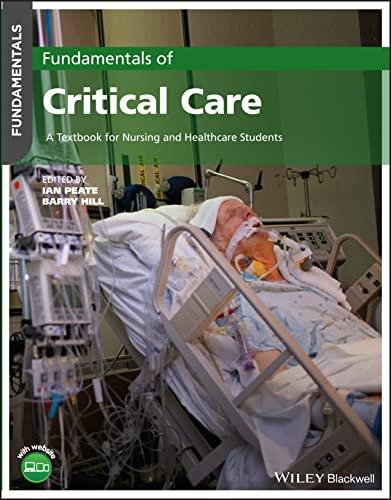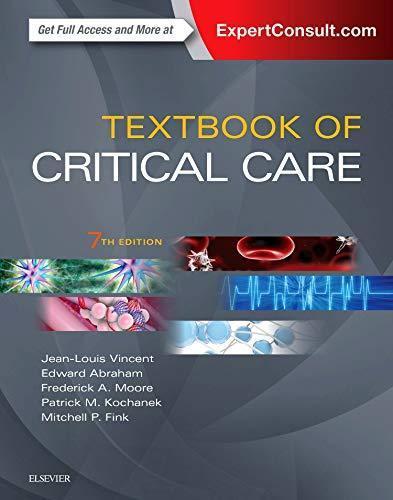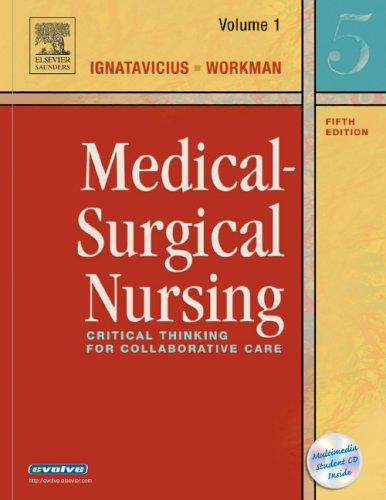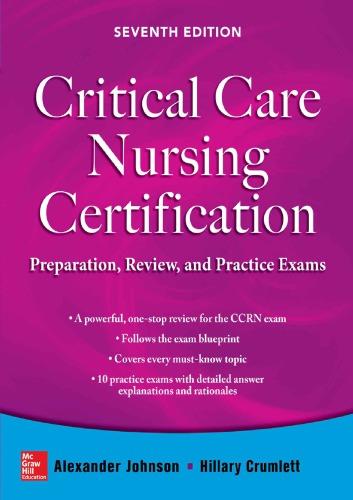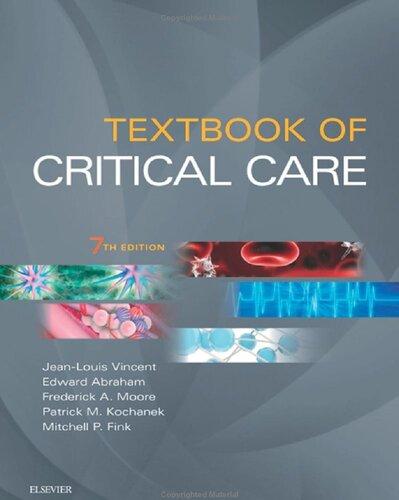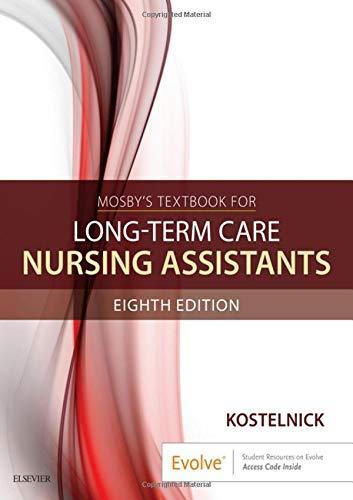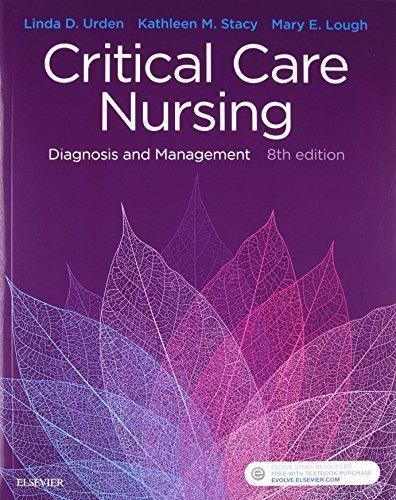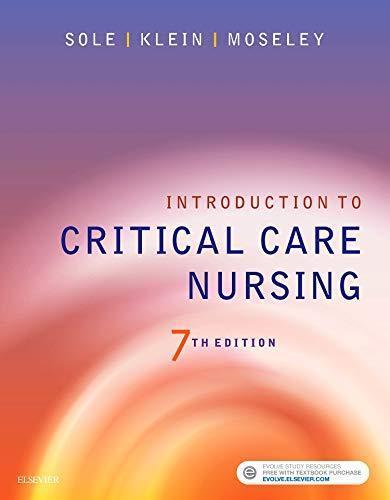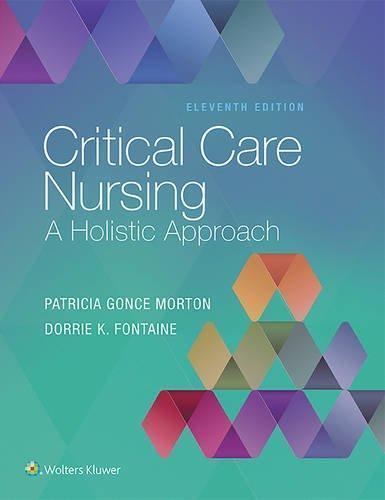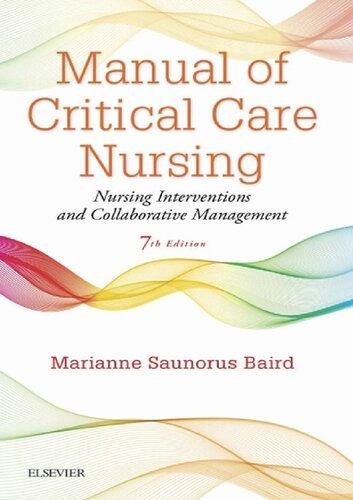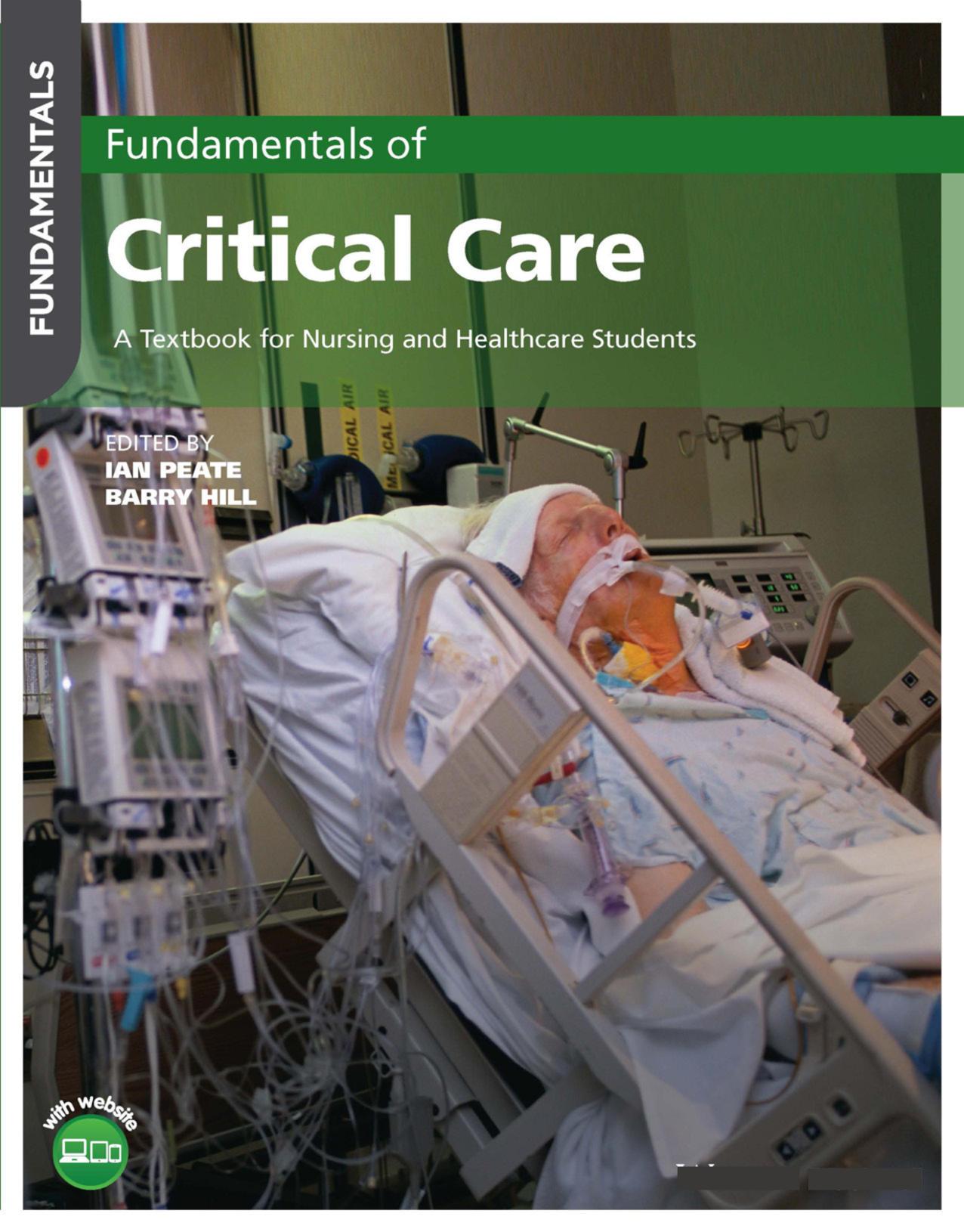Contributors
Aileen Aherne, RN, Dip HE (Nursing), BHSc Nursing, MSc Nursing Studies, MSc Advanced Clinical Practice, V300 Central Manchester University Hospitals NHS Foundation Trust
Aileen’s interests lie in hepatology, nursing Science and Oncology Aileen has skills and expertise in nursing, palliative medicine, and clinical nursing. She works in the Department of General Surgery at Manchester Royal Infirmary.
Pamela Arasen, RN, FHEA, BScN in Cardiorespiratory Care, MSc in Advanced Practice in Critical care, PGCE Senior Lecturer in Critical Care Nursing, University of West London (UWL).
Pamela started her career as a registered nurse after completing a Diploma in Nursing at St Bartholomew School of Nursing, City University in 2005. She spent a few years working in Acute Medical/Surgical wards and A&E, continued her education pathway in a BSc in Cardiorespiratory Care, before moving to Critical Care at West Middlesex University Hospital. She specialised in the Critical Care Outreach Team at King’s College Hospital, after completing her MSc in Advanced Practice in Critical Care in 2015. In 2018, she was appointed as a Lecturer Practitioner in Intensive Care at UWL teaching on the ITU course. She had a joint appointment at the London Northwest Healthcare Trust as the Lead in Education in Intensive Care Nursing, where she introduced the inhouse Intensive Care Adult course with UWL partnership during the COVID 19 pandemic. After the completion of the Academic Professional Apprenticeship, she works as a Senior Lecturer in Critical Care at the UWL, teaching in the Continuous Professional Development modules. Pamela’s special interests are Critical Care, Education and Career Development in Nursing.
Leonie Armstrong, RGN, NMP, Ma Ethics in Cancer and Palliative Care
Leonie qualified as a registered general nurse in 1994. She has worked in the speciality of palliative care for over 25 years in hospices and hospital palliative care services in the North East. Her current role is clinical lead nurse for hospital palliative care at Northumbria specialised emergency care hospital.
Joe Box, RN, BSc, MSc (Advanced Clinical Practice), V300
Joe has worked in emergency surgical admissions for 15 years, initially in Liverpool and Melbourne, before settling in Manchester. Whilst a ward-based nurse, he facilitated
the student nurse programme and received multiple award nominations for mentor of the year and then placement provider of the year. Going back to university to complete a MSc in Advanced Clinical Practice after 10 years of experience, he now works in a Nursing Times award winning team of emergency general surgical Advanced Nurse Practitioners and retains his passion for educating existing staff and the next generation of nurses.
Mark Cannan, MSc, BSc (Hons), Dip HE
Advanced Critical Care Practitioner, Intensive Care, North Cumbria University Hospitals Foundation Trust, UK
Mark entered the health care profession as an Operating Department Practitioner (ODP) in 2013 with the University of Central Lancashire (UCLan), having witnessed the work of an ODP first hand in the theatres of Camp Bastion, Afghanistan. On qualification, he rotated through anaesthetic and scrub practice, in both elective and emergency surgical procedures in two busy district general hospitals. Whilst qualifying with a diploma, he continued in education by completing an Honours Degree in Acute and Critical Care at the University of Cumbria, which is where he discovered the Advanced Critical Care Practitioner (ACCP) role. Having excluded career progression in managerial or educational roles, the ACCP role seemed to best fit his aspirations by being retained at the bedside, performing clinical duties. Mark started his ACCP training with Northumbria University in 2017 and qualified in 2019 with a Post Graduate Diploma and works across two general intensive care units, which increased to four during the COVID-19 pandemic. Mark has since completed his Master’s Degree and has specialist interests in advanced airway management, regional anaesthesia and transfer of the critically ill patient. He is also on the national working group for legislation change in allowing ODPs who have progressed into advanced practice the ability to undertake non-medical prescribing.
Tracey Carrott, MA, RGN
Tracey qualified as a Registered General Nurse some 40 years ago (1982) and she has worked in the Northeast of England the entire time. Tracey have witnessed many changes to the provision of health care during this time, however, she is still as passionate about the role as a nurse as she was and when she began nurse training. Tracey’s nursing background and clinical expertise is that of scientific paradigm having predominantly worked within the
a Specialist Nurse in Organ Donation (SNOD). This niche role involves promoting and raising awareness about the value of organ and tissue donation. Fundamentally, she has the opportunity to be able to empower a family and to support them should their loved one become an organ and tissue donor. She has been in this role for 12 years although now work part-time. Prior to becoming a SNOD she worked as a nurse in Cardio-thoracic critical care and as a nurse practitioner in an accident and emergency department. She also managed a Coronary Care Unit for several years. Tracy has always had an avid interest in education and posess an MA in Advanced Practice. She is also a Registered NMC Lecturer Practitioner, having achieved a Post Graduate Diploma with Commendation in Health and Social Care Practice, Education and Development.
Iain Carstairs, MBBS, BSc (Hons) Pharmacology and Neuroscience Specialist Grade Doctor in Anaesthetics.
Iain studied medicine at Newcastle University and practiced his early career in the speciality of Emergency Medicine at Edinburgh Royal Infirmary. In 2009 he transferred to the speciality of anaesthesia within the Northern Deanery and currently works as a Specialty Grade Anaesthetist at Northumbria Healthcare NHS Foundation Trust. In his current role Iain provides planned and emergency care across a range of clinical settings that includes theatres, obstetrics, pre-assessment and CPEX, and critical care to patients of all age ranges. He supports the clinical education and development of many members of the multidisciplinary team including trainee doctors, ODPs and Physician Associates. Iain is a member of the Association of Anaesthetists of Great Britain and Ireland and an SAS member of the Royal College of Anaesthetists.
Victoria Clemett, PhD, RN (adult), BNurs, FHEA
Victoria began her nursing a career as a healthcare assistant before completed her registered nurse (RN) training at The University of Birmingham, UK in 2005. Following her junior staff nurse rotations at The University Hospital Birmingham, she specialised in burns and reconstructive practice surgery. Victoria relocated to the southeast and moved into research and education. Victoria is an NMC registered teacher and has several years’ experience in nurse education. Special interests include wound care, clinical decision making, translational research and simulated learning.
Sarah Crowe, MN, PMD-NP(F), CNCC(C), NP
Critical Care Nurse Practitioner, Surrey Memorial Hospital, Fraser Health
Adjunct Professor, School of Nursing, University of British Columbia Instructor, Critical Care Speciality Nursing Program, British Columbia Institute of Technology
President, Canadian Association of Critical Care Nurses
Adjunct Professor, UBC School of Nursing
Sarah began her nursing career at Surrey Memorial Hospital in 2000 in the Emergency department before transitioning to critical care in 2004. She completed dual specialty certification in both Emergency and Critical Care Nursing. She went on to complete a Master’s of Nursing in 2010, and a post-Master’s graduate diploma in Nurse Practitioner in 2018. Her key areas of research and interest are in ICU survivorship, chronically critically ill patients, and supporting the mental health and practice of critical care nurses. She has received several research grants for her work. Sarah is currently the Vice President of the Canadian Association of Critical Care Nurses.
Stuart Cox, BSc (Hons), MSc (ACCP), mFICM
Advanced Critical Care Practitioner, University Hospitals Southampton NHS & Dorset and Somerset Air Ambulance.
Stuart works as an Advanced Critical Care Practitioner (ACCP) at University Hospitals Southampton NHS & Dorset and Somerset Air Ambulance. Prior to this he was employed as a Senior Charge Nurse ICU at Southampton and Senior Nurse CEGA Air Ambulance. He graduated with a BSc (Hons) in Nursing Science and completed his MSc in ACCP in 2018. Stuart is a Registered Nurse with the Nursing and Midwifery Council (NMC), and an ACCP with membership with the faculty of intensive care medicine (FICM).
Sadie Diamond-Fox, MCP ACCP (mFICM), BSc (Hons) RN, PGCAHP, NMP (V300), FHEA
Sadie Diamond-Fox graduated from Northampton University in 2008 with a BSc (Hons) Adult Nursing and immediately began her critical care career, initially working at Papworth and Cambridge Hospitals. In 2012 she moved to Newcastle upon Tyne Hospitals to commence training as an Advanced Critical Care Practitioner, completing a Masters of Clinical Practice in Advanced Critical Care Practice (ACCP) in 2015 and was awarded ACCP membership to the Faculty of Intensive Care Medicine in 2016. Sadie has since continued to work clinically as an ACCP alongside developing an extensive teaching portfolio with Northumbria University, and is currently studying a PhD (The ‘ImpACCPt’ study). Sadie has several national roles in the fields of advanced practice and critical care, including her more recent appointments with Health Education England (HEE) as Regional Advancing Practice Supervision and Assessment Lead for North East & Yorkshire, the Intensive Care Society as Council Member, Education Committee Member and Chair of the Professional Advisory Group for Advanced Practitioners in Critical Care (APCC PAG). Sadie also co-chairs the Advanced Clinical Practitioners Academic Network (ACPAN).
Rana Din, RGN BSc (Hons) Nursing (Manchester Metropolitan University), MSc Advance Clinical Nursing Skills (University of Huddersfield), PGCE Lecturer, University of Salford
Rana began his nursing career at Birch Hill Hospital in Rochdale working within Medicine/Surgery and ICU. The majority of his career has been based in Critical Care in the
North West of England in various roles as Practice Educator, Charge Nurse and Matron. Also he has had extensive experience of working in nurse education at the University of Chester, University of Bolton and currently at the University of Salford.
Alexandra Gatehouse
Alexandra Gatehouse graduated from Nottingham University in 2000 with a BSc (Hons) Physiotherapy. Following Junior Rotations in the Newcastle Trust she specialised in Respiratory Physiotherapy in Adult Critical Care, also working within New Zealand. In 2012 she trained as an Advanced Critical Care Practitioner, completing a Masters in Clinical Practice in Critical Care and qualifying in 2014. Alex subsequently completed her non-medical prescribing qualification and continues to rotate within all of the Critical Care Units in Newcastle Upon Tyne, also enjoying teaching on the regional transfer course. She is a co-founder of the Advanced Critical Care Practitioner Northern Region Group and is a committee member of the North East Intensive Care Society. Alex has presented abstracts at the European Society of Intensive Care Medicine and the North East Intensive Care Society conferences.
Kirstin Geer, BSc (Hons) MSc (Advanced Clinical Practice) PGDip (Advanced Critical Care Practice) mFICM. Advanced Critical Care Practitioner, North Cumbria Integrated Care, UK
Kirstin qualified as a nurse in 2005 and has worked in Emergency Admissions, Critical Care Outreach and qualified as an Advanced Critical Care Practitioner in 2016.
Special interests include Critical Care Transfer and Simulation.
Jan Guerin, Dip General Nursing (RSA), BSc Nursing Education (RSA), PGD ANP(UK), Diploma General Adult Critical Care (RSA), Diploma Trauma and Emergency Nursing Science (RSA). Certified Lifestyle Medicine Practitioner (UK)
Jan is currently in a role as a General Manager of a residential adult care home, working for Signature Senior Lifestyle in the UK. Jan qualified as a General Registered Nurse in South Africa in 1992. She gained 12 years of accumulative experience working in acute care settings within the field of adult emergency and critical care including 4 years as a lead lecturer for Trauma and Emergency Nursing. Jan moved to the UK in 2006 and joined Hammersmith Hospitals NHS Trust as a Senior Staff Nurse in adult General ITU which included a year of secondment experience in Critical Care Outreach at Charing Cross Hospital. In 2017, Jan worked for the Hillingdon Hospitals NHS Trust and in the roles as an ITU Nurse Educator and Practice Nurse Educator as lead for Clinical skills. Jan moved to adult social care nursing in 2020, and is in a role as a Quality Business Partner with Sunrise-Gracewell Senior Living. Jan has a special interest in health promotion and prevention of chronic disease and is a certified Lifestyle Medicine Practitioner.
Barry Hill, MSc, ANP, PGCAP, PGCE, BSc (Hons), DipHE, O.A. Dip, Fellow (FHEA), NMC RN & TCH & V300
Barry completed his Registered Nurse (RN) training at Northumbria University and Buckinghamshire Chilterns University College (BCUC). Barry’s clinical experience is within critical care nursing which has been gained at Imperial College NHS Trust, London, UK. Barry is critical care certified, has a clinical master’s in advanced practice (clinical), and has a PGC in Academic Practice. Barry is registered with the NMC as a Registered Nurse, independent and supplementary prescriber (V300), and Registered Teacher (TCH). Barry is currently the Director of Education (Employability) and Assistant Professor at Northumbria University. He teaches undergraduate and postgraduate students from all clinical healthcare disciplines. His key areas of interest are clinical education, acute and critical care, clinical skills, prescribing and pharmacology, and advanced-level practice. Barry has published books, book chapters, and peer-reviewed journal articles. He is a Senior Fellow with the Higher Education Academy (SFHEA) and Clinical Series and Commissioning Editor of the British Journal of Nursing.
Paul Jebb, OStJ MA, BSc(Hons), DipHE RN
Paul qualified as a nurse in 1996 and worked in numerous posts within nursing, operational management and a national role within NHS England.
In December 2016 Paul returned to an NHS Trust and is now Associate Chief Nurse Experience, Engagement & Safeguarding at Lancashire & South Cumbria NHS FT.
Paul has been involved and led on numerous quality improvement initiatives throughout his career, and has gained several awards and accolades.
Paul is also a member of an NMC Professional Standards advisory panel, and has represented the Royal College of Nursing at local, regional, national and international levels, and is currently a member of the RCN Nurses in Leadership & Management Forum steering group as well as a member of RCNi Editorial Advisory Board.
Paul also holds an Honorary Senior Lecturer post at the University of Central Lancashire.
Paul is also chair of the board of Trustees at Blackpool Carers Centre, and a passionate supporter of Cavell Nurses Trust.
Timothy Kuhn, RN, MSc, PgDip, BSc (Hons), Senior Lead Nurse Critical Care and Critical Care Outreach, Advanced Critical Care Practitioner
Timothy is a Registered Nurse educated to Master’s level. He has extensive experience in critical care nursing with both senior clinical and senior management skills and experience. Timothy is also a Faculty of Intensive Care Medicine (FICM) accredited Advanced Critical Care Practitioner. In addition to his professional experience, he has a wealth of experience in the voluntary sector. Some of his interests include - nurse development and education, management,
team development, clinical governance, vascular access, extracorporeal organ support, first aid teaching/training and voluntary sector work.
Nicole Lee, RN, BSc, PGCE
Nicole Lee, Burns Matron Chelsea and Westminster hospital, Lead Nurse London and South East Burns Network and Co course Lead Advanced Burns Module, University East Anglia. My Burns History takes me back to starting within the burns speciality in 2008 in St Andrews (Chelmsford) Burns ITU, where I worked for 15 Years from band 5 up to band 7 clinical facilitator looking after the large burns that required burns ITU multi organ support. I took on the burns lead nurse role for the network in 2019 where I am able to support regional and national change to our specialist burns services. In 2020 I took on the Burns Matron role at Queen Victoria Hospital for one year and moved on to Burns Matron at Chelsea and Westminster in 2021. Additional Specialist interests are Simulation training, Burns education, Burns prevention and supporting burns and critical care charities.
Emma Long, BSc (Hons) Nursing, Msc Advanced Nursing. Practice Development Sister, Intensive Care, Chelsea & Westminster Hospital, London
Emma qualified in 1997. She started her Critical Care Nursing Career in 1998. She has worked not only in the UK (in London and Belfast) but also within the field in Australia. Emma has an interest in nursing education and is currently studying to become one the first Professional Nurse Advocates.
Fiona McLeod, RN, BScN, BSc, CNCC (C) Manager of Clinical Operations, Critical Care and Biocontainment, Surrey Memorial Hospital.
Fiona began her nursing career at Surrey Memorial Hospital in 2007 in the ICU after graduating with a BScN from British Columbia Institute of Technology with Honours and winning the Associate Dean’s Prize for Excellence in Clinical Nursing. Shortly after graduation she went on to complete her specialty certification in Critical Care. Fiona has spend her entire career in Critical Care starting as a bedside nurse and transitioning into many leadership roles throughout her time at Surrey Memorial Hospital. Fiona is also a member of the Canadian Association of Critical Care Nurses.
Aurora Medonica, PG Cert, BSc (Hons), MSc, NMC V300, mFICM
Advanced Critical Care Practitioner, Oxford University Hospitals Foundation Trust
Aurora began her nursing career in Italy with a BSc in Adult Nursing. She then moved to Oxford (UK), where she worked as registered intensive care nurse, deputy sister and advanced critical care practitioner in the cardiac and thoracic intensive care unit.
She also collaborated with Oxford Brookes University as a Specialist Lecturer and with the British Association of
Critical Care Nurses, where she presented her MSc dissertation findings at the latest conference.
Her key areas of interest are intensive care and advanced practice.
Helen Merlane, MSC, BA (Hons), PGCE, PGDip HE, FHEA
Helen began her nursing a career at St James University Hospital, Leeds working on a medical and surgical ward, before becoming a Macmillan Clinical Nurse Specialist in Palliative Care in 1994. She worked as a Macmillan Nurse for 21 years at St James’s University Hospital Leeds & the Freeman Hospital, Newcastle upon Tyne. Helen took up the role of a senior lecturer at Northumbria University in 2015, and teaches on the preregistration, apprenticeship and master’s adult nursing programmes. She is currently undertaking a PhD, looking at what factors prepare student nurses to care for dying patients. Her key interests are palliative and end of life care.
Gerri Mortimore, PhD, MSc Advanced Practice; PgCert (IPPE); Ba(Hons) Health Studies; iLM, RGN, NMP, FHEA
Gerri is a RGN, with over 40 years’ experience, spanning both acute medical and surgical nursing, within the UK and abroad. This nursing expertise, especially within the field of liver disease has enabled her to be selected as an expert advisor on three National Institute of Health and Care Excellence (NICE) Clinical Guidelines and two Quality Standards and be a specialist member of an Advisory Committee in patients with suspected alcohol related liver disease. In 2015, in recognition of her contribution to NICE, Gerri was awarded the title, Nurse Expert Advisor.
In 2020, along with her co-authors Gerri successfully authored the Venesection Best Practice Guidelines, endorsed by the Royal College of Nursing. This publication has assisted in standardising the care of thousands of UK patients undergoing venesection every year and culminated in Gerri winning the prestigious British Journal of Nursing, Nurse of the Year Award in 2021, nominated by the NMC.
Currently, Gerri is employed as an Associate Professor in Advanced Clinical Practice at the University of Derby and is also a Government Commissioner for the Commission of Human Medicines.
Lorraine Mutrie, Ma, PGC, BSc (Hons), DipHE, RN, FHEA Assistant Professor and Programme Leader for Adult Critical Care Nursing and Advanced Practice.
Lorraine completed her registered nurse training at Leeds University and her early career was in surgical nursing. In 2005 she returned to the Northeast and continued her nursing career in critical care roles.
Since 2015 Lorraine has worked at Northumbria University leading on post registration programmes and modules in acute and critical illness and advanced practice. She also contributes to teaching on pre-registration healthcare programmes. Lorraine has published on topics related to
critical care in textbooks and peer reviewed journal articles. Her research interests include the critical care workforce, and she is currently undertaking a PhD on this topic.
Lorraine was former chair of the Northern Region BACCN committee, is a current member of the NoECCN Education Group, and contributed to the development of the NoRF Level 1 Competence Framework.
Jacqueline Newby, BA
Jacqueline Newby is a specialist nurse in organ donation for NHS Blood and Transplant. She has been a nurse for 32 years working in intensive care or organ donation where she has been involved in developing and managing change in the dynamic field of donation and transplant.
Geraldine Fitzgerald O’Connor, BA (Hons)
Practice Development Sister, Intensive Care, Chelsea & Westminster Hospital, London
Geraldine began her nursing career studying at both Oxford Brookes University and at the University of Pennsylvania, Philadelphia. She followed a Specialist Nursing rotation following graduation and has continued working within Intensive Care since.
Geraldine has an interest in nursing education and is one of the first Professional Nurse Advocates.
Samantha O’Driscoll, RN (Adult), PGDip, BSc (Hons)
Senior Clinical Educator, Critical Care, Imperial College NHS Trust
Samantha studied Physiological Sciences at Bristol University. Whilst undertaking this degree she worked as an HCA at the Bristol Royal Infirmary, sparking a desire to pursue a career in nursing. She achieved a Post Graduate Diploma in Nursing from King’s College, London. During her nursing training she developed a love for critical care nursing, blending her human sciences background with compassionate care. She worked as a Staff Nurse in Adult Intensive Care at St Mary’s Hospital, Paddington, before moving into Emergency Department nursing and working as an Outreach Practitioner. She holds a postgraduate certificate in critical care and is an ALS instructor. Throughout her career she developed her skills in practice-based coaching and teaching. She now works in clinical education, with an interest in clinical development and the use of simulated practice to support learning.
Dr Vikki Park, PhD, PG Dip., PG Cert., BSc (Hons), FHEA, HEA Mentor, RN, RNT Assistant Professor in Nursing & IPECP (Interprofessional Education & Collaborative Practice), Northumbria University, UK
Vikki has worked in healthcare since 1999 in nursing homes, acute medical admissions, and adult critical care. Vikki has been awarded a Doctor of Philosophy, Post Graduate Diploma in Academic and Professional Learning, Post Graduate Certificate in Practice Development, and BSc (Hons) in Nursing Studies. She is a Fellow and Mentor of the Higher
Education Academy and an NMC Registered Nurse Teacher. Vikki has worked within education since 2010 with experience in Further Education and Higher Education. Principal areas of scholarly interest include interprofessionalism, critical care, simulation-based education, patient safety and clinical skills development. Vikki is an Adult Intensive Care Reviewer for the Nursing in Critical Care Journal, Treasurer & Trustee of the Northern Regional BACCN Committee (British Association of Critical Care Nurses), and elected National Board member of CAIPE (Centre for the Advancement of Interprofessional Education). Vikki is also an active member of several international working groups, including IP.Global and IPR.Global.
Wendy Pollock, RN(Aust), RM(Aust), GCALL (Melb), GD Crit Care Nsg (RMIT), GD Ed (Hawthorn-Melb), PhD (Melb)
Associate Professor, School of Nursing and Midwifery, Monash University, Australia; Visiting Scholar, Department of Nursing, Midwifery and Health, Northumbria University, UK.
Wendy began her nursing career at The Royal Melbourne Hospital (Australia), where she completed a general nursing certificate to become a Registered Nurse, followed by a critical care nursing certificate. After some time working in an intensive care unit, she completed a midwifery certificate at Mercy Hospital for Women to become a Registered Midwife. A number of university studies followed, culminating in a PhD on ‘Critically ill pregnant and postpartum women in Victoria’, conferred in 2008. Wendy has extensive clinical, education and research experience, primarily in the critical care context, with a focus on severe maternal morbidity, and she is widely published in this area. She has made long-standing active contributions to the Australian College of Critical Care Nurses and the Australian College of Midwives, and sat on the Consultative Council of Obstetric and Paediatric Mortality and Morbidity sub- committee reviewing all maternal deaths in Victoria, Australia for nearly 20 years.
Anna Riley, RGN, BNurs (Hons), PGCert, MSc, INP V300
Lead Advanced Clinical Practitioner, General and Emergency Surgery, Manchester Royal Infirmary, UK
Royal College of Nursing Strategic Alliance PhD student, University of Sheffield, UK
Anna began her career in central Manchester and after working immediately post qualification in urology surgery, moved on to work in the Critical Care Unit at Manchester Royal Infirmary as a staff nurse. After working here for four years and completing a PG Cert in Health Ethics in Law in her spare time, she left to pursue a career in advanced clinical practice within general surgery, completing her Master’s degree at the University of Chester and qualifying in 2014.
Anna has worked across Wirral University Hospitals Foundation Trust before returning to Manchester Royal Infirmary in 2016 and has since been appointed as Service Lead. In 2019,
University of Sheffield, as part of their five-year strategic alliance with the Royal College of Nursing. She continues to present at local, national and international congress, contribute to local and national research and policy and has strong links with local higher education institutes, with a true passion for her profession, education and development.
Helen Sanger, BSc (hons), PgCert MSc, MCSP
Helen Sanger is a clinical specialist physiotherapist in critical care at Newcastle Upon Tyne Hospitals NHS Foundation Trust. She qualified as a physiotherapist in 2010 and has worked in critical care since 2013. Her particular area of interest is rehabilitation during and after critical care. In addition to her NHS role, Helen has held numerous national posts, including newsletter editor for the association of chartered physiotherapists in respiratory care, and elected member of the physiotherapy professional advisory group for the Intensive Care Society. She completed a postgraduate certificate in advanced clinical practice (critical care) in 2020.
Alice Shaw, BN (Hons), PG Cert, FHEA
After completing her nursing degree at The University of Birmingham, Alice began her Critical Care career at Good Hope Hospital, Sutton Coldfield. She later moved to London where she spent nine years as a Staff Nurse, Team Leader, Practice Development Nurse and later Senior Practice Development Nurse on the Critical Care Units belonging to Kings College Hospital NHS Foundation Trust. Alice has been in clinical nurse education since 2013 and completed a PG Certificate in Clinical Education at Kings College London in 2019. She has a strong passion for critical care and clinical nurse education and currently works as an Education Development Practitioner, on the Cardiac Intensive Care Unit at Manchester Royal Infirmary, Manchester University NHS Foundation Trust. Alice is also a Practice Based Educator at the Greater Manchester Critical Care Skills Institute.
Paul Sinnott, RGN, BSc (Hons), M.Ed., MSc, ACCPFICM
Paul started his nursing career as a staff nurse working in the field of gastroenterology in 1996. Moving to the intensive care unit at Manchester Royal Infirmary in 1998 kindled a lifelong passion for critical care nursing. Over the last 23 years Paul has worked in a number of roles in both general and cardiac critical care. In 2016 Paul completed a masters in advanced clinical practice and took up post as an Advanced
Critical Care Practitioner on the Cardiac Intensive Care Unit within the Manchester University NHS Foundation Trust. He subsequently achieved ACCP membership of the Faculty of Intensive Care Medicine in 2017. In addition to his clinical role, Paul holds an associate lecturer post at the University of Salford and supports the development of advanced clinical practitioners/advance critical care practitioners across Greater Manchester.
Joyce Smith, RN, EN(G), BSc (Hons), MSc, PGCE, ENB 100 Lecturer in Adult Nursing, School of Health and Society, University of Salford.
Joyce began her nursing career at Bury School of Nursing becoming an Enrolled nurse working in Intensive Care and later completing the conversion course and continuing to work in Intensive Care as a Sister and Practice Educator. In 2006 became a lecturer in nurse education at the University of Salford. Joyce’s key areas of interest are in critical care nursing and recognising and responding to signs of deterioration. Joyce has published a book and also published in several peer-reviewed nursing journals. Joyce is on the Greater Manchester Critical Care Advisory Board and implemented the Acute Illness Management Course for student nurses in 2008.
Clare L. Wade, BSc (Hons), PGCAP, FHEA, MCSP Lecturer in Physiotherapy, Northumbria University; Advanced Physiotherapist, The Newcastle upon Tyne Hospitals NHS Foundation Trust
Clare is an Advanced Physiotherapist at The Newcastle upon Tyne Hospitals NHS Foundation Trust and PhD candidate and Lecturer at Northumbria University. Qualifying as a physiotherapist in 2010, Clare went on to specialise in respiratory physiotherapy before becoming an advanced critical care physiotherapist in 2015. She has keen interests in intensive care unit-acquired weakness and rehabilitation after critical illness, with a particular research interest in culture of physical activity and rehabilitation in the critical care environment. Clare also has a keen interest in pre-registration and post- graduate cardiorespiratory physiotherapy education and has worked in higher education since 2018. She sits on the editorial board for the Association of Chartered Physiotherapists in Respiratory Care and is an elected member of the Physiotherapists Professional Advisory Group for the Intensive Care Society.
